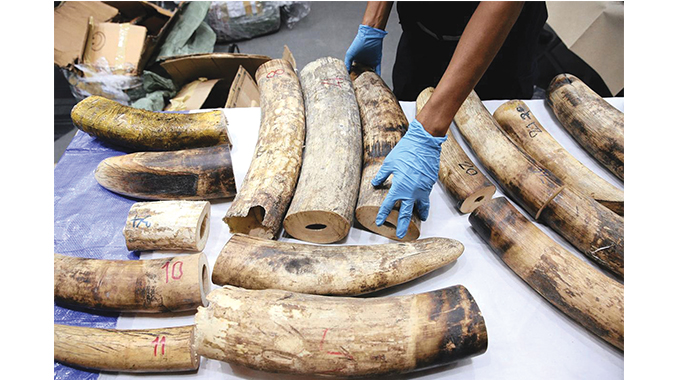
Emmanuel Koro
SADC countries have individually decided not to get involved in the non-commercial international trade in rhino horn. This questionable decision has happened despite approval for such trade by the UN international wild trade-regulating agency, CITES, and despite the help it would give to wildlife conservation, the jobs it would create, and the socio-economic benefits it would bring to southern Africa.
Why? The reluctance to trade rhino horn in any way possible seems strange in the face of the economic devastation, particularly to rural areas, caused by the Covid-19 pandemic. It has almost stopped the tourism and hunting industries. Both are currently failing to generate the needed conservation revenue to sustain wildlife areas. In light of the Covid-19 emergency, which may last another six to nine months — Sadc citizens as well as friendly foreign observers should be forgiven for asking why Sadc countries are still refusing to do anything to take advantage of any kind of trade in rhino horn.
“Are officials looking after our wildlife or their pocketbooks in the current crisis?” asked a Sadc country citizen who spoke on condition of anonymity.
Responding to questions why they would not jump at the opportunity to raise rhino conservation funds through international non-commercial rhino horn trade, most of the Sadc countries suggested in their answers that non-commercial trade would not earn them much revenue. They prefer commercial trade that they say would potentially fill the market with legal and cheaper rhino products and put the poaching syndicates out of the rhino horn business once and for all.
“Refusing to trade in non-commercial rhino horn products is troubling,” said the managing director of the US-based Ivory Education Institute (IEI), Godfrey Harris — a strong supporter of Sadc countries’ sustainable use cause. For example, this month he strongly objected to an option offered by the CITES Secretariat to “manage” stockpiled ivory by destroying it.
“Establishing a legal non-commercial market — the mechanism for exporting and importing the product — will reduce unwarranted fears,” said Harris. “It will also make the public aware that rhino horn harvesting is not lethal to the animals and make commercial use seem like a normal extension of national policy when it comes. Crawl before you walk; walk before you run. The bureaucrats overseeing rhino horn trade seem to want to be in a position to compete in a marathon from the get go.”
In contrast, Sadc citizens said that they fully support the position taken by most Sadc countries to not get involved in non-commercial trade but instead work towards the resumption of strictly controlled international commercial trade in rhino horn. These citizens include Chieftainess Rebecca Baneka of Botswana’s Pandamantenga Community in Chobe District, former CEO of Kavango-Zambezi Transfrontier Conservation Area (KAZA-TFCA) that has the world’s biggest elephant population, Dr Morrison Mtsambiwa and Botswana Chobe Enclave Conservation Trust Vice-chairman Nchungu Nchungu. Others supporting the position of non-involvement innon-commercial trading in rhino horn include Masoka Campfire Community representative of Zimbabwe, Mr Ishmael Chaukura and Botswana’s executive director of Ngamiland NGOs, Mr Siyoka Simasiku.
“I think they (Sadc governments) have a point about getting full commercial value (out of rhino horn) as it’s likely to bring in more money for conservation as part of the sustainable use of natural resources etc,” said Dr Mtsambiwa.
The executive director of Botswana’s Ngamiland NGOs, Siyoka said, “yes, I agree with them (Sadc governments)” because commercial rhino horn trade would bring more revenue than non-commercial rhino horn trade.
Meanwhile, critical observers exhibit their doubt about this approach by asking the question, “Will commercial trade in rhino horn ever happen in view of the fact that there is very strong international opposition to it?”
The UN agency CITES banned international trade in rhino horn in 1977. Since then, the influential anti-trade non-governmental animal rights organisations and some Western governments have made sure that the ban would remain in place by buying the votes of various countries (when necessary) and through other corrupting moves (providing travel, schooling, training, speaking honoraria, consulting fees, discounts, job opportunities, gifts for relatives, etc) that have prevented trade for the past 43 years.
“The real answer of course would be to open up the legal international trade (in rhino horn) to optimise conservation funding, to compete with the illegal trade which is rampant anyway and to enable the custodians to break the monopoly held by the criminals who (currently) take 100 percent of the revenue while (we the) custodians pay all the costs of (animal) protection,” said Ted Reilly, the CEO of the Big Game Parks, an agency that King Mswati of Eswatini has mandated to manage the Kingdom’s wildlife. “If legal trade in rhino horn were permitted, Eswatini would not need aid to meet its commitments and would be better able to perform its conservation priorities.”
The Zimbabwe Parks and Wildlife Management Director General, Fulton Mangwanya said that Zimbabwe will benefit more from commercial than “exceptionally authorised” non-commercial trade of rhino horns and derivatives.
“Certainly non-commercial international rhino horn or ivory trade will help raise conservation funds,” said Director-General Mangwanya. “Zimbabwe is in need of funding to conserve its wildlife. I think we are the only country in Sadc that self-funds conservation.”
Elsewhere in the Sadc region, Botswana’s Minister of Environment, Conservation and Tourism, Philda Kereng, said “Botswana does not sell rhino horn and its derivatives for non-commercial purposes. To this extent, Botswana has exercised its rights on non-commercial by exchanging some rhinos (mainly bulls) with South Africa for genetic viability, as our rhino population is small. However, as for non-commercial trade with research institutes, hospitals and museums, this has not happened yet as none of these entities have approached us for such proposed transactions, which we could consider on a case-by-case scenario.”
